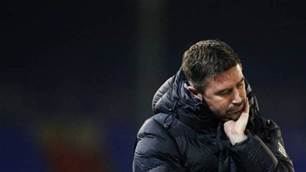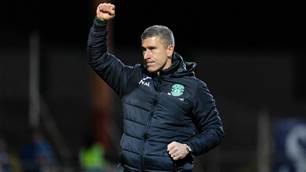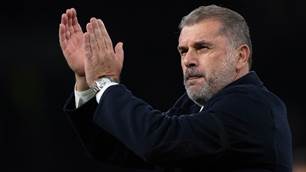In separate interviews, Ange Postecoglou has delved further into his controversial Socceroos resignation and the fight he has on his hands in Yokohama.
"I had a few drinks and with every drink I kept thinking, 'Oh, maybe I should just go to the World Cup..."
Postecoglou is deciding to release the details of that fateful night in Sydney piece by piece, slowly completing a confusing jigsaw puzzle that it appears he, himself, is still working on.
Speaking to BBC World Football, thousands of kilometres away from the emotion and scrutiny of the Australian media, a relaxed, even jovial sounding Postecoglou said he had decided to resign from the national team much earlier than previously revealed.
"It was probably 12 months in the making and in the final six-months of qualification I was pretty much resigned to it," the 52-year-old said.
"Towards the tail-end of qualifying, just before the Confederations Cup, I got the sense that I was becoming more frustrated with aspects of what I was doing than enjoying it.
"I knew that once the role was done it was time for me to move on and grow, go to the World Cup with a different voice in their head.
(The match against Honduras) was a tough night. Internally there was a lot of self satisfaction. You create a bond with the players and I wanted them to be happy, but I was thinking this is probably the last time I'll get to work with them.

"I had a few drinks and with every drink I kept thinking, 'Oh, maybe I should just go to the World Cup, because you enjoy working with people and see people having success and I wanted to be part of that.
"I was leaving on my own terms. There was some relief and some satisfaction, but that came later."
Perhaps more revealing than the indecisiveness within Postecoglou's inner-monologue was his inability to tell his players, many of whom he had brought into the Socceroos set up from relative unknowns.
The interviewer pushes him on exactly what he said to the players that night in Sydney, and for a second Postecoglou falls silent.
"I didn't tell them. I couldn't to be honest," Postecoglou said.
"With international football as it is, the players were on the plane the next evening, and I didn't make the public announcement until a few days later.
"I had a couple of quick conversations with the players that night, just did the usual bit of telling them to keep healthy until the next camp.
"They probably thought I was just keeping my usual distance, I think they would have been surprised by me resigning."
Now faced with the daunting task of watching the World Cup, "plonked on a bar", beer in hand on a "Greek island somewhere", Postecoglou remains, for the most part, stoic in his decisions.
But he admits that watching the culmination of four years work from afar will be the hardest part yet.
"That will be the toughest time," he said.
"I'm under no illusions about what I'm giving up, I realise I've given up a hell of a lot but as I sit here now, I don't regret what I've done.

"I want to have a certain intent in everything I do...if I can't marry that with what I'm doing than it's best I leave because I'll coach but I won't coach well, I'll just do the job.
"I've avoided having a proper job my whole life because I'll wake up in the morning and I just won't want to."
Now returned to the more formulaic world of club coaching with J-League outfit Yokohama F Marinos, Postecoglou is once again attempting to be a catalyst for an evolving club's identity.
Once again, he's facing the same struggles. The Marinos, which finished fifth last season, are now languishing in 13th place, just two points off relegation.
Amid rising pressure on the Australian coach, he once again took to a separate medium, Melbourne AFL-centric radio station SEN, to deliver a positive message to those watching from home.
“Things are going okay here," Postecoglou said.
"Results haven’t been spectacular but I’m slowly making in-road in terms of the way I want the team to play.
“I’ll plonk myself up at a bar somewhere hopefully on an island in Greece and cheer the boys on and then get back to work here and make a success here at Yokohama.”
Related Articles

Socceroos great Harry Kewell sacked by Japanese club

Champion A-League coach set to join Premier League giants












